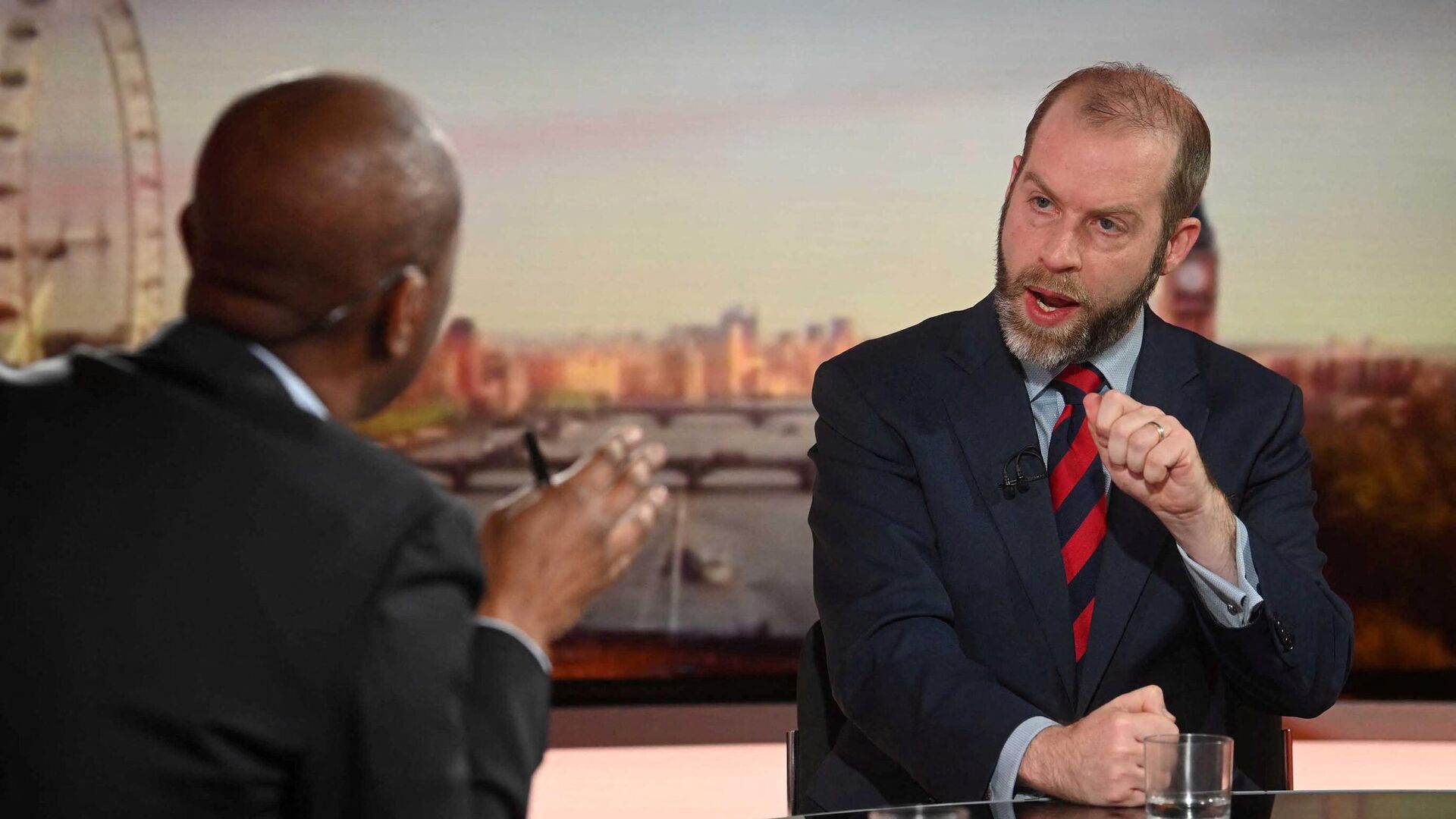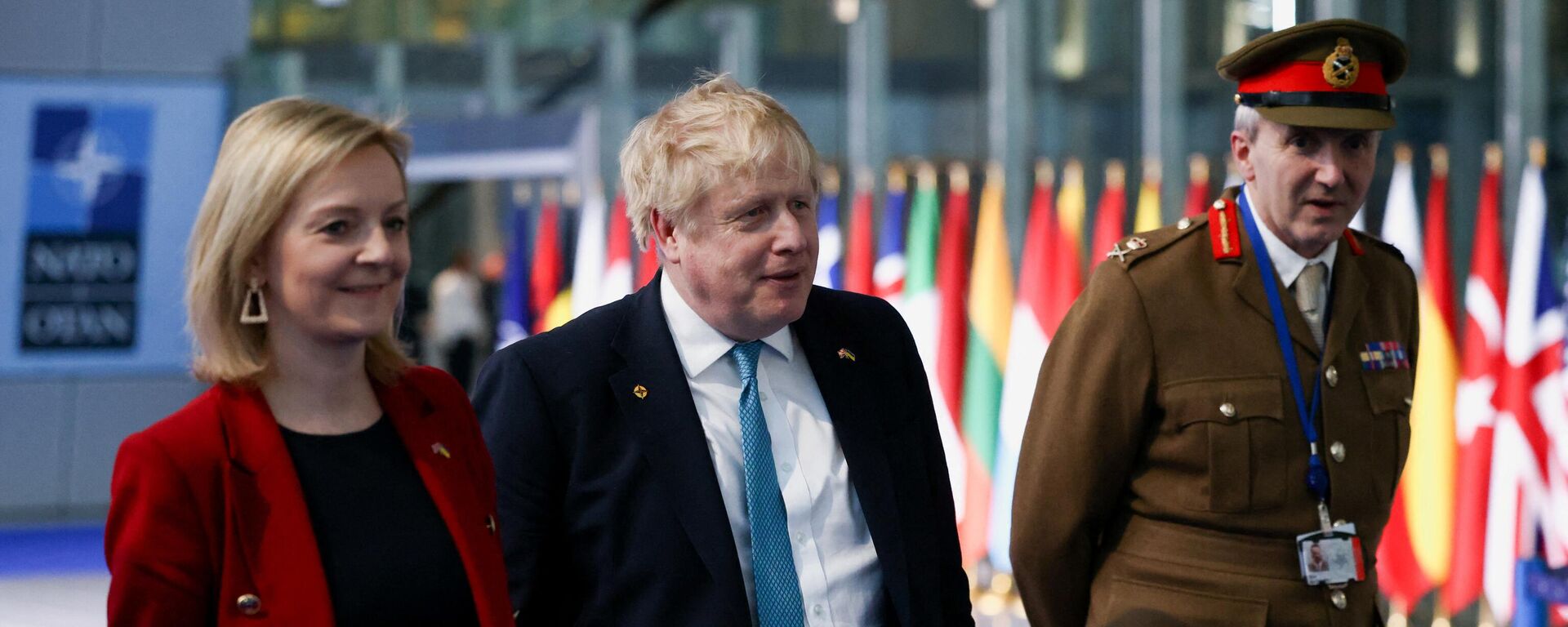https://sputnikglobe.com/20220403/shadow-industry-minister-backs-rationing-gas-but-opposes-oil-drilling-on-green-grounds-1094441609.html
UK Shadow Industry Minister Backs Rationing Gas But Opposes Oil Drilling on Green Grounds
UK Shadow Industry Minister Backs Rationing Gas But Opposes Oil Drilling on Green Grounds
Sputnik International
Western sanctions on Russia over the special operation in Ukraine have recently had negative implications on the European Union, Britain and the US, as... 03.04.2022, Sputnik International
2022-04-03T19:00+0000
2022-04-03T19:00+0000
2023-05-28T15:18+0000
british labour party
bbc
britain
great britain
ukraine
renewable energy
fuel shortage
oil prices
inflation
poverty
https://cdn1.img.sputnikglobe.com/img/07e6/04/03/1094441437_0:0:2747:1546_1920x0_80_0_0_503a9a660cd6097c14a4baed084188e3.jpg
Labour's business spokesman has backed rationing of oil and gas amid the economic war on Russia — but opposes new oil drilling on environmental grounds.UK Shadow Business and Industry Secretary Jonathan Reynolds told BBC Sunday Morning programme host Clive Myrie that the UK should imitate European Union countries now planning to impose rationing — not seen since the Second World War — on energy supplies.The shadow minister stressed that British consumers would have to further cut their household heating, cooking and car fuel use — prices of which have already soared by 50 per cent — to hurt the Russian economy as punishment for its "demilitarisation and de-Nazification" campaign in Ukraine.Additionally, he said Britain should look to "renewables" and nuclear energy to replace fossil fuel imports from Russia in the long term, indicating he wanted the economic blockade on Russia to continue even after the war ends. "Looking at the images coming out of Ukraine right now, I don't think we should be talking about going back to business as usual where we just buy large quantities of fossil fuels from Russia," Reynolds said.But Conservative Transport Minister Grant Shapps, interviewed by the BBC, ruled out restricting fuel and energy use."We don't see rationing being part of our approach to this, and nor should it be," Shapps said, insisting that offshore wind turbines and the new generation of small modular nuclear reactors currently in development would make up for shortfalls.Reynolds also told Sky News' Sophy Ridge that extending drilling permits for oil and gas in the North Sea would not affect the international market price — inflated by the threat of cutting off supplies from Russia — and insisted that the UK must prioritise "net zero" goals of reducing fossil fuel use over bringing down bills for struggling households.He further appeared to insult the Persian Gulf Arab monarchies as well as Russia when he said there was a danger that "you just go from one autocratic, authoritarian regime to another" in seeking alternative energy suppliers.But Schapps shot down Reynolds again when he told Ridge that he opposed building more on-shore wind farms, calling them an "eyesore."Russia responded this week to sanctions, including the freezing of its currency reserves in foreign banks and embargoes on its own financial sector, by requiring Western countries to pay for gas supplies in rubles deposited in Russian banks.That immediately prompted the exchange rate to drop from around 106 rubles to the US dollar to 85, not far above the pre-war level.France and Germany have declared they will not pay in rubles, but German business leaders have warned that the country's economy, the largest in western Europe, will collapse without Russian gas.
https://sputnikglobe.com/20220327/uk-foreign-secretary-hints-russia-sanctions-may-stay-even-after-peace-deal-1094236212.html
britain
great britain
ukraine
russia
united kingdom (uk)
Sputnik International
feedback@sputniknews.com
+74956456601
MIA „Rossiya Segodnya“
2022
James Tweedie
https://cdn1.img.sputnikglobe.com/img/07e4/08/1c/1080307270_0:3:397:400_100x100_80_0_0_7777393b9b18802f2e3c5eaa9cbcc612.png
James Tweedie
https://cdn1.img.sputnikglobe.com/img/07e4/08/1c/1080307270_0:3:397:400_100x100_80_0_0_7777393b9b18802f2e3c5eaa9cbcc612.png
News
en_EN
Sputnik International
feedback@sputniknews.com
+74956456601
MIA „Rossiya Segodnya“
Sputnik International
feedback@sputniknews.com
+74956456601
MIA „Rossiya Segodnya“
James Tweedie
https://cdn1.img.sputnikglobe.com/img/07e4/08/1c/1080307270_0:3:397:400_100x100_80_0_0_7777393b9b18802f2e3c5eaa9cbcc612.png
british labour party, bbc, britain, great britain, ukraine, renewable energy, fuel shortage, oil prices, inflation, poverty, clive myrie, russia, united kingdom (uk)
british labour party, bbc, britain, great britain, ukraine, renewable energy, fuel shortage, oil prices, inflation, poverty, clive myrie, russia, united kingdom (uk)
UK Shadow Industry Minister Backs Rationing Gas But Opposes Oil Drilling on Green Grounds
19:00 GMT 03.04.2022 (Updated: 15:18 GMT 28.05.2023) Western sanctions on Russia over the special operation in Ukraine have recently had negative implications on the European Union, Britain and the US, as households have had to deal with soaring bill figures and skyrocketing gas prices.
Labour's business spokesman has backed rationing of oil and gas amid the economic war on Russia — but opposes new oil drilling on environmental grounds.
UK Shadow Business and Industry Secretary Jonathan Reynolds told BBC Sunday Morning programme host Clive Myrie that the UK should imitate European Union countries now planning to impose rationing — not seen since the Second World War — on energy supplies.
"We should be making those plans," Reynolds said, "and the government should be preparing, not necessarily in public, for that situation."
The shadow minister stressed that British consumers would have to further cut their household heating, cooking and car fuel use — prices of which have already soared by 50 per cent — to hurt the Russian economy as punishment for its "demilitarisation and de-Nazification"
campaign in Ukraine.
"There's a lot of complacency in this country about the relative lower exposure to Russian gas that we have," Reynolds said. "We should bear in mind that part of the supply that comes to this country from, for instance, Norway, or from the liquified natural gas that comes into the terminals in Wales, that's party because Russian gas is fulfilling the demand in central Europe."
Additionally, he said Britain should look to "renewables" and nuclear energy to replace fossil fuel imports from Russia in the long term, indicating he wanted the economic blockade on Russia to continue even after the war ends.
"Looking at the images coming out of Ukraine right now, I don't think we should be talking about going back to business as usual where we just buy large quantities of fossil fuels from Russia," Reynolds said.
But Conservative Transport Minister Grant Shapps, interviewed by the BBC, ruled out restricting fuel and energy use.
"We don't see rationing being part of our approach to this, and nor should it be," Shapps said, insisting that offshore wind turbines and the new generation of small modular
nuclear reactors currently in development would make up for shortfalls.
Reynolds also told Sky News' Sophy Ridge that extending drilling permits for oil and gas in the North Sea would not affect the international market price — inflated by the threat of cutting off supplies from Russia — and insisted that the UK must prioritise "net zero" goals of reducing fossil fuel use over bringing down bills for struggling households.
He further appeared to insult the Persian Gulf Arab monarchies as well as Russia when he said there was a danger that "you just go from one autocratic, authoritarian regime to another" in seeking alternative energy suppliers.
But Schapps shot down Reynolds again when he told Ridge that he opposed building more on-shore wind farms, calling them an "eyesore."
Russia responded this week to sanctions, including the freezing of its currency reserves in foreign banks and embargoes on its own financial sector, by requiring Western countries to pay for gas supplies
in rubles deposited in Russian banks.
That immediately prompted the exchange rate to drop from around 106 rubles to the US dollar to 85, not far above the pre-war level.
France and Germany have declared they will not pay in rubles, but German business leaders have warned that the country's economy, the largest in western Europe,
will collapse without Russian gas.




